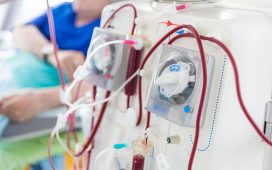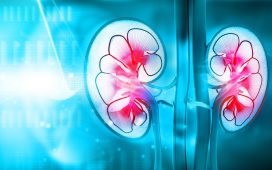At six months, glycemic control improved in children, teens with type 1 diabetes receiving HCL intervention versus conventional therapies
THURSDAY, Oct. 14, 2021 (HealthDay News) — For children and adolescents with type 1 diabetes, hybrid closed-loop (HCL) therapy improves glycemic control and quality of life, according to a study published online Oct. 11 in JAMA Pediatrics.
Mary B. Abraham, Ph.D., from the University of Western Australia, and colleagues examined the percentage of time spent in the target glucose range using HCL versus current conventional therapies in a six-month randomized clinical trial including children and adolescents with type 1 diabetes. Data were included for 135 patients: 68 randomly assigned to the control group and 67 to the HCL group.
The researchers found that in the intention-to-treat analyses, there was an increase in time in range (within a glucose range of 70 to 180 mg/dL) from baseline to the end of the study, from 53.1 to 62.5 percent in the HCL group and from 54.6 to 56.1 percent in the control group (mean adjusted difference, 6.7 percent). The time patients spent in a hypoglycemic range (<70 mg/dL) was reduced for patients in the HCL group (difference, −1.9 percent), and they had improved glycemic variability (coefficient of variation difference, −5.7 percent). HCL was associated with improved diabetes-specific quality of life (difference, 4.4 points); no change was seen in diabetes distress. Neither group had episodes of severe hypoglycemia or diabetic ketoacidosis.
“The HCL system represents an important step in the pursuit of technological advancements toward a fully automated closed-loop system,” the authors write.
Several authors disclosed ties to the pharmaceutical and medical device industries; in-kind support was provided by Medtronic through the provision of insulin pumps, sensors, and transmitters for the study, and Roche Diabetes Care provided the glucometers for the study.
Copyright © 2021 HealthDay. All rights reserved.








